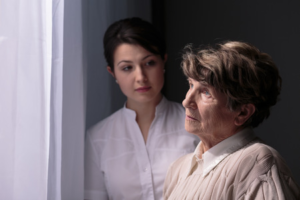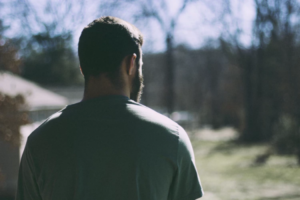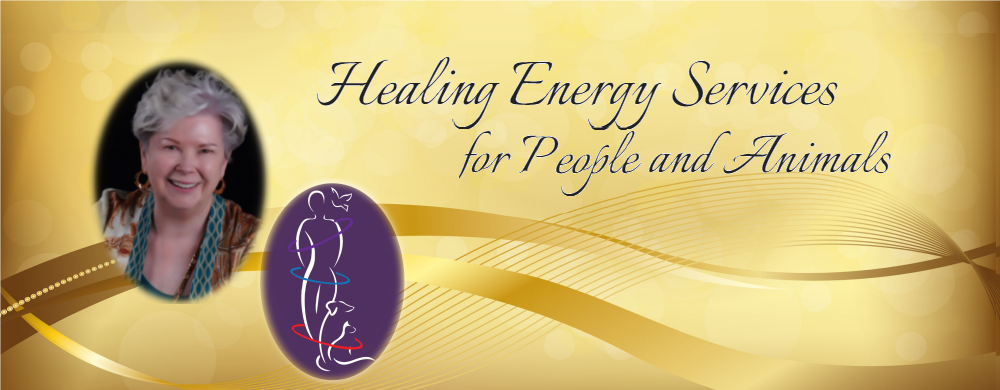Choosing to Heal
Healed or Cured or Both?
Part 3 (A 3-part series)
– Wanda Buckner

Physicist and mathematician Stephen Hawking has a progressive motor neuron (ALS: Amyotrophic Lateral Sclerosis, or Lou Gehrig’s) disease that has left him almost completely paralyzed. He has a tracheotomy and uses a voice synthesizer to speak. Hawking says he is wholly dependent on other people, but in his mind, he is free (Stephen Hawking: Does God Exist? Video. 2012.) Hawking is healed, even though he is not cured.
My friend Maria had cancer for a very long time. She went through agonizing treatments that left her exhausted. Sometimes the cancer was in remission, sometimes it wasn’t. Many times, she thought she would die. Many times, she wished she would die. But she didn’t. Instead, Maria fell in love. When she fell in love and enjoyed living, despite her recurring bouts of illness, she healed. For the remaining months of Maria’s life, she lived fully and loved
fully. In the peace and joy of love, she died—healed, but not cured.
Cured or Healed or Both?
Healing is influenced by the demands of our lives; the support of those we love; our attitude about our situation; and our view of life, death, and life after death.
- If we believe our lives extend beyond this realm, death may feel less final and may even be welcome.
- If we believe we will be punished throughout eternity unless we conform to the requirements of our religion, then our time living will be consumed by fulfilling those demands.
- If we believe our lives end with our physical bodies, we are pressured by having only one opportunity to get it right.
- If we believe our illness is a punishment for a deed done in this life or a past life, that is the framework from which we will experience our illness and the framework from which we must be healed.
Two Different Outlooks…
 Elizabeth is waiting to die and has been for some years now. She has outlived her husband, her siblings, and her peers. Her home is comfortable, her family loving, and her care excellent. She has no life-threatening disease. She lives in an adult retirement community with a full program of activities. Her lunch and dinner are provided. Light housekeeping keeps her apartment tidy. When asked if she is happy, she says, “No.” If asked if she’d rather be
Elizabeth is waiting to die and has been for some years now. She has outlived her husband, her siblings, and her peers. Her home is comfortable, her family loving, and her care excellent. She has no life-threatening disease. She lives in an adult retirement community with a full program of activities. Her lunch and dinner are provided. Light housekeeping keeps her apartment tidy. When asked if she is happy, she says, “No.” If asked if she’d rather be
dead, she says, “Yes.”
Jacqueline, Elizabeth’s sister, wrote to tell her how happy she was in her new apartment—there were lots of activities, she didn’t have to cook or even make the bed. Jacqueline couldn’t believe her good fortune. “How did I get so lucky?” The two sisters are in the same situation, but their outlooks are different. If Elizabeth saw the blessings in her surroundings and the beauty in the details of her day, perhaps she would heal.
The placebo effect is a prime example of self-healing.
We swallow a sugar pill and believe we will be healed and we are. The mechanism through which this happens is of great interest to scientists and doctors. A 2008 Harvard placebo study treated volunteers with IBS (irritable bowel syndrome) with sham acupuncture using needles that did not penetrate the skin. Even so, forty-four percent of participants reported relief of their symptoms. When combined with “attentive, empathetic interaction with the acupuncturist,” 62% reported relief. (Harvard Health Letter. Harvard Health Publications: Harvard Medical School. April 2012.) Deepak Chopra in Quantum Healing: Exploring the Frontiers of Mind/Body Medicine, 1989, reports multiple stories of miraculous healings and the ability of people to self-heal. Dr. Joe Dispenza, in You are the Placebo, 2014, discusses and advocates using mind over body to heal. He gives many examples of people who successfully healed using his mind/body techniques.
“The body heals itself. This might seem to be an obvious statement, because we are well aware that wounds heal and cells routinely replace themselves. Nonetheless, this is a profound concept among CAM systems because self-healing is the basis of all healing.” (Marc S. Micozzi, Fundamentals of Complementary and Alternative Medicine [CAM]. 2011.)
Choosing Healing
 To be cured is to be rid of a specific disease or condition. To be healed is to be at peace with ourselves and the universe. We cannot always be cured, but we can always be healed. A young woman confided to me that her male friend had Stage 4 metastasized cancer. He was doing all the possible medical treatments as well as positive affirmations, meditation, and mental imagery. But the cancer marched on. She asked, “Why isn’t it working?”
To be cured is to be rid of a specific disease or condition. To be healed is to be at peace with ourselves and the universe. We cannot always be cured, but we can always be healed. A young woman confided to me that her male friend had Stage 4 metastasized cancer. He was doing all the possible medical treatments as well as positive affirmations, meditation, and mental imagery. But the cancer marched on. She asked, “Why isn’t it working?”
If our obsession with being cured blots out everything else, we lose opportunities to live fully in the days we have. Death is inevitable. However, even faced with a life-ending disease, we can heal. We can use the days to review our life, to express gratitude, to mend relationships, to see friends and family, and to complete whatever seems unfinished. In the time we have, whether moments or years, we can use our breath to love and appreciate this world
and those around us.
When we are ill, we can choose to treat or not to treat our condition. We can choose western, eastern, alternative, or
complementary interventions or use any of these methods in various combinations. To choose one type of intervention does not eliminate all others. We can choose and choose again. Sally chose to return to work. Mom refused to accept that nothing could be done about her pain. Sheldon let go of the doctor’s diagnosis and allowed another possibility. Hawking accepted the restrictions of ALS. Maria chose to heal, though she could not be cured. The most important choice we make is the decision to heal. All else follows.
****”Choosing to Heal” by Wanda Buckner, was originally published in Heal Thy Self: Tapping Your Innate Wisdom to Heal Your Mind, Body, and Spirit, compiled by Sue Urda and Kathy Flyer, published by Powerful You! Publishing, 2017, available through Amazon.
